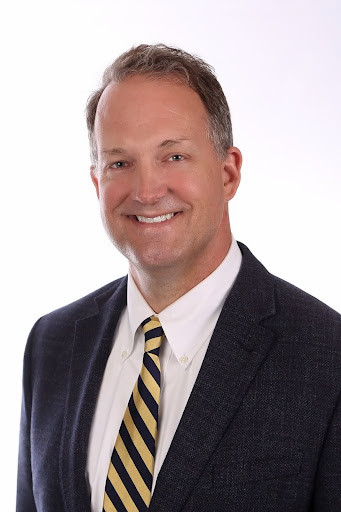Healthcare Costs Are Rising: ReforMedicine Founder Illuminates Implications for Employers

The rising healthcare costs don't seem to be slowing down any time soon. Dr. David J. Usher, founder of ReforMedicine, an independent direct-pay family medicine clinic, believes that alternative models must be employed and greater transparency should be practiced in the space.
In 2025, the cost of employer-sponsored health coverage is expected to rise by 9%, surpassing $16,000 per employee. This would put organizations under extreme financial pressure. Employers are, therefore, reassessing their approach to employee healthcare benefits. Some are reconsidering long-standing partnerships with insurers and healthcare providers to explore newer, more agile solutions. Others are planning to utilize alternative plan structures, for example, self-funded health plans.
Essentially, employers must make difficult decisions about their benefits offerings. It doesn't matter if they're motivated by a desire to provide the best possible healthcare for their employees or the need to meet federal requirements cost-effectively. Traditional healthcare plans would continue to leave them with increasingly limited control over spending. To avoid this, employers must start looking at this from a different angle. It's worth emphasizing that employees are affected at the same time. They may face higher deductibles and expenses that are out-of-pocket, making it more difficult to access needed care.
Dr. Usher states that the lack of price transparency in conventional healthcare models adds to the problem because employers and employees are uncertain about the true cost of services. He has seen how some employers are forced into high-cost insurance plans (with little to no flexibility at that). Regulatory structures have required them to purchase a certain standard of health plan, which means their ability to look for more affordable or innovative alternatives is limited.
"Another issue is that insurance companies are essentially incentivized to pay more in claims. They're not encouraged to reduce costs, so premiums go up year after year," Dr. Usher states. He adds that employers then have to face unpredictable and unsustainable healthcare expenses.
Many companies have sought ReforMedicine's services because of this landscape. ReforMedicine is known for providing primary care services and helping employers reduce avoidable expenses brought on by traditional insurance billing. ReforMDirect, one of its offerings, specifically caters to employers looking for cost-effective healthcare solutions. It can help employers reduce their healthcare expenses and ensure that employees can access high-quality care through its near-site and on-site direct primary care (DPC) services. With ReforMDirect, employers can save a significant percentage on their total costs.
"The problem is that employers often don't look for a solution until something consequential happens," says Dr. Usher. Implications that come from crisis purchases are evident. Dr. Usher continues, "You don't want to buy a car when your current car no longer runs, so why would you do this for something as important as healthcare?"
ReforMedicine is keen on educating employers, helping them understand that the main driver of increasing healthcare costs isn't primary care itself. It's the inefficient way it's accessed and funded. Dr. Usher argues that primary care is usually used as a referral funnel in traditional systems. It directs patients toward expensive specialists and hospital-based services.
ReforMedicine employs a different approach. Its DPC model can provide employers and employees with a reliable, cost-effective way to access healthcare. Employers that prepay for services through ReforMedicine's membership model can make billing less complex and create a system where employees are encouraged to engage with their healthcare providers without hesitating due to finances. This would potentially lead to better outcomes over time, as it reduces the chances of relying on expensive specialty care (which also means substantial cost savings for employers).
"Our providers are healthcare professionals who know the cost challenges that employers face. We intentionally hire medical staff who are passionate about providing cost-effective care. I'm proud to say that each and every one of us is dedicated to ensuring patients receive high-quality treatment without unnecessary expenses. On the other hand, we empower employers by working with their health plan to find the most cost-effective solution," Dr. Usher supplies.
Interestingly, the healthcare landscape is transforming. Transparency is being emphasized. Patients, employers, and even healthcare providers themselves have been frustrated for years because of pricing. Costs have been unclear, which means people have trouble making informed decisions about their care. Fortunately, change is happening. There's more attention to ensuring that prices are visible and open to comparison.
This instance signals a broader shift toward efficiency and accountability. Transparency in pricing can reshape the industry by encouraging competition, driving down costs, and empowering patients and employers. The days when corporate entities (e.g., hospitals, insurance companies, etc.) benefit at patients' expense could finally be numbered.
Transparency has always been at the center of ReforMedicine's model. Since its foundation, it has offered clear, upfront costs for services. "Back in the day, before cell phones, every phone call cost money. Cell phone providers changed the model, and now, you can pay a set monthly fee and talk, text, or use data without worrying about individual charges. Primary care can work the same way. If employers adopt a direct-pay model like ours, employees can seek care without worrying about hidden costs. Employers would also be better able to control spending and get better value for every dollar spent," Dr. Usher shares.
Healthcare costs continue to rise, but Dr. Usher is optimistic, given the changing landscape. He notes that progress may not happen all at once. However, the mere increased attention on the pricing of healthcare means conversations about efficiency and affordability are becoming more difficult to ignore.
This focus on transparency will likely grow and create more opportunities for patients and employers to make informed choices about their healthcare options. Meanwhile, ReforMedicine stays committed to offering a transparent, cost-effective alternative that allows stakeholders to take charge of their healthcare strategy.
© Copyright IBTimes 2024. All rights reserved.





















